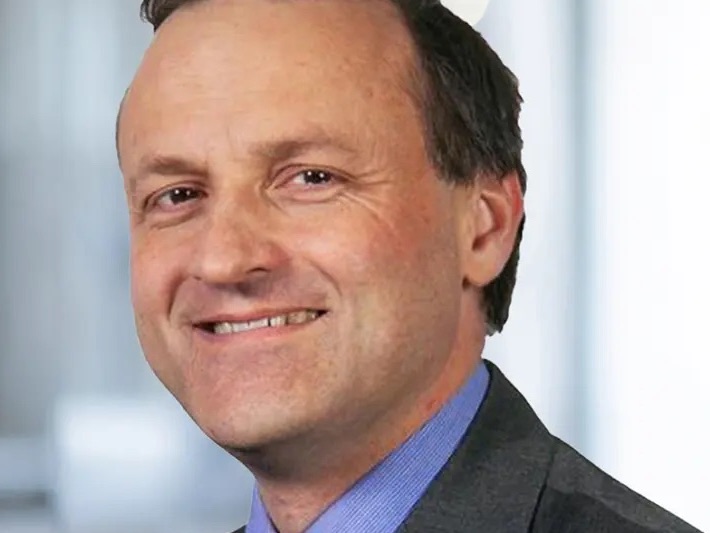
Former Pensions Minister Sir Steve Webb said the State Pension increase will pull 340,000 into paying income tax

Former Pensions Minister Sir Steve Webb said the State Pension increase will pull 340,000 into paying income tax
An estimated 340,000 more pensioners will pay income tax on their State Pension next year due to the Triple Lock pushing up the State Pension above inflation.
The government’s commitment to the Triple Lock means the State Pension is set to rise by 4% in April, adding £460 a year to the pension.
The State Pension is expected to rise from £11,502 to £11,962 from April.
The Triple Lock increases the basic and new State Pension in line with the highest figure of: annual CPI inflation to September, growth in average annual earnings for May-July and 2.5%.
With the ONS announcing a 4% rise in average earnings for May-July, and CPI predicted to be between 2.5% and 3.5%, a 4% rise in the State Pension is likely for next year.
According to Sir Steve Webb, a former Pensions Minister and partner at pension consultancy LCP, the rise in the State Pension will see many pensioners still worse off in real terms if they lose their Winter Fuel Payment as planned by Chancellor Rachel Reeves.
Sir Steve said: “Part of next April’s increase is simply to keep pace with rising prices. Based on the current inflation figure of 2.2%, the new State Pension would need to rise by just over £250 simply for pensioners to stand still.
"Whilst an above-inflation increase of £460 will be welcomed, only the further £210 represents a real increase. And this is before allowing for the income tax which most pensioners will pay on their State Pension rise. Those who lose £200 or £300 in Winter Fuel Payments will therefore still be worse off in real terms next April.”
According to platform Nucleus, the 4% rise will cost the government around £3.6bn a year.
Andrew Tully, technical services director at Nucleus, added that the increase in the State Pension will see more pensioners starting to pay income tax.
He said: “While the headline State Pension increases by the Triple Lock, other parts of the State Pension such as SERPS/S2P, the graduated pension, protected payments and benefits for deferring, will go up by the lower CPI figure which will be confirmed in October.
“This increase pushes the headline State Pension figure closer to the frozen personal allowance of £12,570, making it likely more pensioners solely in receipt of the State Pension will start to pay income tax. This brings the interaction of State Pensions, the Triple Lock, means-tested benefits, and personal tax allowances sharply into focus.”
HMRC estimates that there are currently 8.5m pensioners paying income tax, just under three quarters of all pensioners.
Sir Steve estimated that with tax thresholds frozen, around 340,000 more pensioners will face paying income tax on their pension for the first time due to the increase.
Helen Morrissey, head of retirement analysis at Hargreaves Lansdown, said the increase to the State Pension could serve as a catalyst for reform to the Triple Lock and the long-term role of the State Pension in the government’s forthcoming pension review.
She said: “We need to see the State Pension and the Triple Lock’s role form part of the government’s pension review, so pension provision can be assessed in a holistic manner that puts the State Pension on a sustainable footing long term. People need certainty of what they will receive from the state – and when – in order to make sensible plans for their retirement.”
Rachel Vahey, head of pubic policy at platform AJ Bell, agreed that the rise in the State Pension could drive the government to address questions such as who should get the State Pension, at what age, and how much.
Jon Greer, head of retirement policy at Quilter, does not expect to see State Pension reform any time soon.
He said: “Following the controversy over limiting winter fuel payments to low-income pensioners, it seems unlikely that the Triple Lock will be altered in the short term.”
Other commentators focused on the fact that the State Pension is still insufficient to provide an adequate living standard in retirement. A single pensioner receiving the full State Pension of £11,962 a year would need an additional £5,238 income from pensions, savings and investments to reach the Joseph Rowntree Foundation Minimum Income Standard of £17,200 a year.
Stephen Lowe, group communications director at Just Group, said: “Even assuming pensioners are receiving the full State Pension – which we know many are not – they will still need to find thousands of pounds of year of extra income to bridge the gap to the Minimum Income Standard.”
Data from Royal London recently revealed that only half of the 3.5m recipients of the new State Pension were paid the full weekly amount of £203.85 last year, due to gaps in National Insurance contributions.
